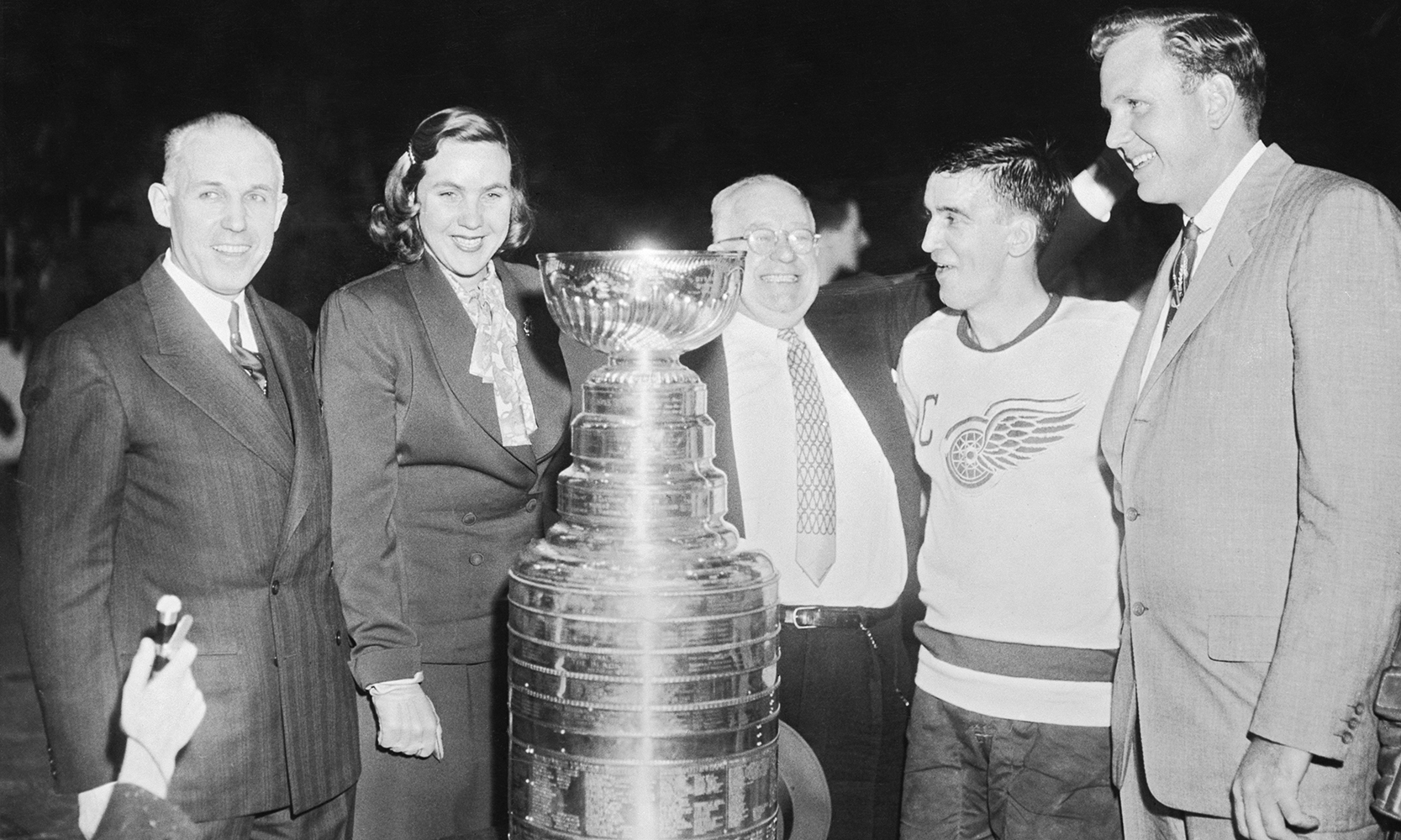What team had the first National Hockey League female executive?
Communications Associate Professor Tim Kiska will give you a clue.
“The three years Marguerite Norris served as president—1953, 1954, 1955—the team was in first place. And two of those years—1954 and 1955—they were Stanley Cup champions,” he said. “I had the chance to talk to Ted Lindsay about her. They—Gordie [Howe], Sid [Abel] and the team— loved her.”
That’s right, Hockey Town. For a golden period in Detroit’s hockey history, the NHL’s first female president and owner was at the Detroit Red Wings’ helm.
“Stories like this are part of our heritage and who we are as Detroiters,” said Kiska, a lifelong Detroiter. “I don’t want to be on a soap box and say, ‘Be proud of your city.’ But I also think we have forgotten some pretty cool things that have happened here.”
Relaying some of Detroit’s unknown or seldom remembered history is the driving force behind the Detroit History Podcast. Kiska launched the podcast in December with audio engineer Bob Koski, producers Bill Kubota and Eric Kiska, TV engineer Greg Taylor, graphic and web designer Kelley Kannon and journalism student Heaven Kayal.
Always on the lookout for those “I didn’t know that” moments, the podcast tells the city's history through its cultural, social, political, musical and automotive heritage.
Kiska’s conversation with Hall of Famer Ted Lindsay about Red Wings history is available starting this afternoon. Previous episodes focus on Detroit Symphony Orchestra’s Orchestra Hall, which includes familial ties to Mark Twain; Coleman A. Young’s stance against 1950s McCarthyism and how Young’s words, “You have me mixed up with a stool pigeon, sir,” became a cultural hit; and what happened when the Fab Four—and Beatlemania—came to Detroit.
Kiska said the idea for the podcast started while doing research for his upcoming book—The History of Detroit: From the Five-dollar Day to the Day GM Filed Bankruptcy.
While in the Detroit Public Library’s Burton Historical Collection, Kiska wondered how the history of Ossip Gabrilowitsch—the first music director of the Detroit Symphony Orchestra—would connect best with the audience.
“I wanted to show how this guy built the symphony. And here were all his papers, all his handwritten notes. He’d been dead since 1936, but his papers and notes were saved. His work was just incredible,” Kiska said. “But how do you get that across? Hearing the 1920s symphony is an important part of the story. Words can’t always do something like that justice; there is nothing like hearing the actual recordings.”
Those recordings now serve as a backdrop for the episode. “We found original 1928 DSO recordings by the Victor Talking Machine Company from an obscure mail order site,” he said. “We had to really dig for that.”
But Kiska and his team don’t always have to dig. Sometimes, because of Kiska’s connections—he started working at the Detroit Free Press in 1970 at age 18 and stayed well connected to the community—the history finds them.
“There always seems to be six degrees of separation to Tim’s connections and the research we do for the show,” Koski said. “All the different people Tim has met with over the years connect us to things we didn’t even know were in existence.
“Tim’s friend Tom De Lilse knew a WKNR-AM radio guy (Tom Ryan) who was at the airport the day the Beatles landed. That’s how we got the 1964 radio recording of the Beatles getting off of the plane at Detroit Metro and the fans going wild. Those details—hearing 6,000 teenage girls scream when the see the Beatles get off the plane—gives you a theater of the mind. It makes the history come alive.”
Kiska said the podcast approach is resonating with audiences.
Episodes of the Detroit History Podcast were downloaded globally nearly 20,000 times in the first month. Because of the response, the team plans to do a second season after the first 10 episodes wrap.
“Detroit has been in the news so much—on the international stage too—that people are paying attention. It’s stunning what we pulled off and the adversity that we’ve had to overcome,” Kiska said. “But that is nothing new for Detroit. We have a history of perseverance and accomplishing great things against the odds. It’s in our DNA.”
New episodes of the Detroit History Podcast are available at 2 p.m. every second and fourth Monday of the month at detroithistorypodcast.com.




